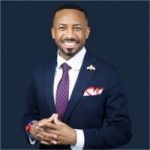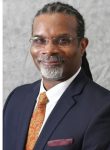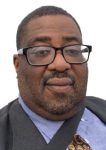(TriceEdneyWire.com) – Historically Black Colleges and Universities (HBCUs) produce 20 percent of all of America’s Black college graduates. That includes 80 percent of Black judges; 70 percent of Black doctors; 50 percent of Black teachers; and 25 percent of Black students who major in science, technology, engineering and math (STEM).
Despite this level of success in educating primarily the descendants of enslaved people – many who are the first to attend college from their families – HBCUs have suffered historical challenges, including underfunding and difficulty attracting and retaining students. That is why educational experts are now applauding the fact that HBCUs are increasingly opening its virtual classrooms to non-traditional students through online learning programs. It is a strategy that is not only enhancing the lives of older adults and professionals, but also positively impacting the growth of historically Black institutions overall.
These are the crucial points made in a new report titled “How HBCUs are Using Technology to Improve Outcomes and Better Fulfill Their Mission”. It is winning wide acclaim for its research on HBCU successes in online education.
“Many HBCUs realize that traditional on-campus programs alone can’t serve all the students who need them,” writes Kristoffer Adams a board member of the Black Legislative Leadership Network and author of the report. “Online education has become a key solution – especially for working adults, military members, and students in rural areas. By working with Online Program Managers (OPMs) – companies that help schools create online programs – HBCUs can reach students they couldn’t before.”
The report, researched by Adams, is being released and discussed this week during a Nashville gathering of the HBCU Caucus Convening, a conference of HBCU officials, advocates and associates coming together to explore ways to expand, empower and move HBCUs forward.
Adams believes his findings may be key to the advancement of HBCUs across the nation. But he is not alone as professors and college administrators laud the benefits of online learning; especially the benefits to HBCUs.
The report quotes Dr. Kendrick Brown, provost and senior vice president for academic affairs at Morehouse College, explaining how the OPMs have worked to extend Morehouse beyond its Atlanta campus. The college now offers an online bachelor’s degree in business administration with about 20 courses, serving about 300 students, the report describes.
“At first, Morehouse didn’t have the technology, experience, or knowledge to offer online classes,” Brown says in the report. But with assistance from the OPM, it not only created the program, but was able to maintain its own Morehouse admission and grading policies, which ensure that the “online program is just as rigorous as on-campus classes.”
Rigor is largely the key says Hamil Harris, a veteran journalist who reported nearly 25 years for the Washington Post. Harris has been teaching online at Maryland’s Morgan State University and is set to teach three additional online courses at Morgan this fall.
“This is not for the lighthearted,” says Harris, an adjunct professor. “People think that online is just talking and listening. No. It’s so important to know what online teaching means. It’s not just to go to Zoom. Online education is evolving.”
Harris says there are students who have not passed his online class because they failed to adhere to the high ethical standards such as using artificial intelligence “in an improper way…There is zero tolerance for cheating.”
The students are coming from every walk of life. Though Harris teaches in the School of Communications at Morgan, most of his students are non-journalism majors. Students in his online media literacy class have included bankers, engineers, chemists, Fortune 500 executives, sports stars, police officers and even FBI agents, he said, illustrating the professional diversity of those who are now being drawn to HBCUs due to online programs. As technology advances, working people often find the need to increase their education in order to advance.
Symone Campbell, Ph.D., a researcher at the Siegel Family Endowment and Professor of Artificial Intelligence (AI) Ethics at Howard University, agrees as she is currently teaching in a graduate program that is entirely online. It is Howard’s newest master’s degree program – a data science and analytics program.
“So, the whole point of this program being online is to be able to market to people who are not able to come to the campus. That allows us to reach so many hundreds of more people than we would be able to if it was an in-person program,” says Campbell, who describes herself as being passionate about advancing technology that serves the needs of underrepresented students.
In an interview, Dr. Campbell points out that the program is also in sync with the historic and cultural mission of HBCUs to provide educational experiences that enhance the progress of African-Americans and other historically oppressed people. For example, “we need more black data scientists; we need more data scientists that are coming from backgrounds that are not White males because all of these technology innovations that are being created over the years, we know that White men are creating them. And they’re being created with their biases. So, we need to train Black data scientists and scientists of color with social justice mindsets, etc.,” Campbell said. She adds that most of the classes are also in the evening, which is a major convenience for people who work during the day.
But technology at HBCUs have proven to be as beneficial to the institution itself as it is to the students. Online programs have been credited for the revival of Morris Brown College, which 22 years ago lost its accreditation and thousands of students amidst financial and legal problems. With its accreditation reinstated only three years ago, its current president, Dr. Kevin James, says in Adams’ report that – partially because of online programs – “The fact that we’re still here, still open, is a miracle in itself.”
Adams says he believes the benefits of online teaching and the growth of technology by HBCUs could grow astronomically for HBCUs and students in the years to come.
“I think the ultimate benefit is that the Black community can now reconvene and figure out how we want to go about taking care of our families,” says Adams in an interview. “Things are being reshuffled. We don’t have to worry about having to go to class in the morning or the middle of the day. We don’t have time for that. But we can go online and kind of work at our own pace or something similar to it. This will allow us to pursue newer and brighter opportunities.”







